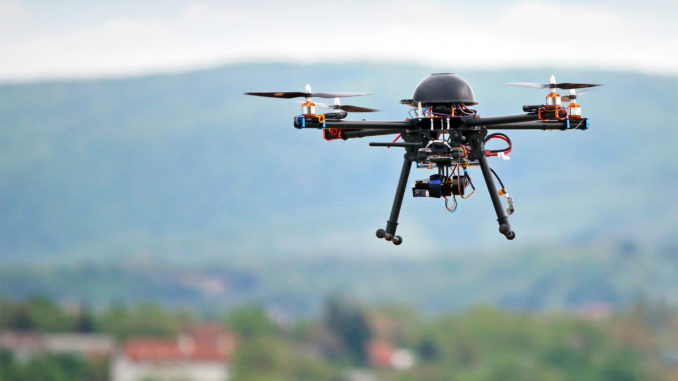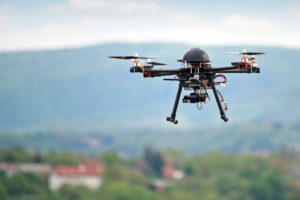
Unmanned Aerial Vehicles, or UAVs (also called drones) are changing the insurance fraud landscape. With their ability to go almost anywhere, the possibilities are endless.
 Just recently, a private investigator was able to capture photos on his drone of a man that was suspected of insurance fraud. The man claimed he was fully disabled, the drone took photos of him engaging in heavy physical activity. Since the investigator was not allowed on the property, having the opportunity to see him do this had previously been impossible.
Just recently, a private investigator was able to capture photos on his drone of a man that was suspected of insurance fraud. The man claimed he was fully disabled, the drone took photos of him engaging in heavy physical activity. Since the investigator was not allowed on the property, having the opportunity to see him do this had previously been impossible.
There are some fixed wing drones that can accept a preset location and fly on autopilot with they can fly slowly above a target and are unable to be detected, while taking high-resolution videos and photos. It is predicted that drones will help cut down on fraud all over the country.
Not only can drones get photos and videos investigators previously couldn’t, but they also cost less, don’t involve physical trespassing, reduce the visibility of the investigator, and give access to areas of interest that are otherwise inaccessible.
Drones are very useful in fighting crop insurance fraud. They can make it cheaper and easier to inspect crops for damage, gather accurate data, then use that data beneficially. The real-time information drones can give allows the insurance adjusters to make quicker decisions on the claims that come in.
Drones can also be used to help with fire responses and investigations. Suppression activities can be optimized as fire departments stream the fire in action through video imagery. The data captured by the drone can also be used to analyze and investigate the fire to determine how it started and why it spread.
There are many insurance companies that are pushing for legislation that will allow them to fully realize the potential of drone technology. There is much research and development going on in the drone industry to provide clear photos and videos for those in the insurance industry and others. Hopefully, the use of drones will reduce the amount of fraud, thus reducing the cost for insurance for everyone.
Of course, privacy is a big challenge that must be faced when using a drone. The FAA has not set a privacy jurisdiction, or shown any interest in doing so, when it comes to drones. Many state and local jurisdictions have their own laws for privacy, though. These regulations may impact fraud investigations in the future. For now, though, investigators use this tool to help them fight against the criminals that target insurance companies.
